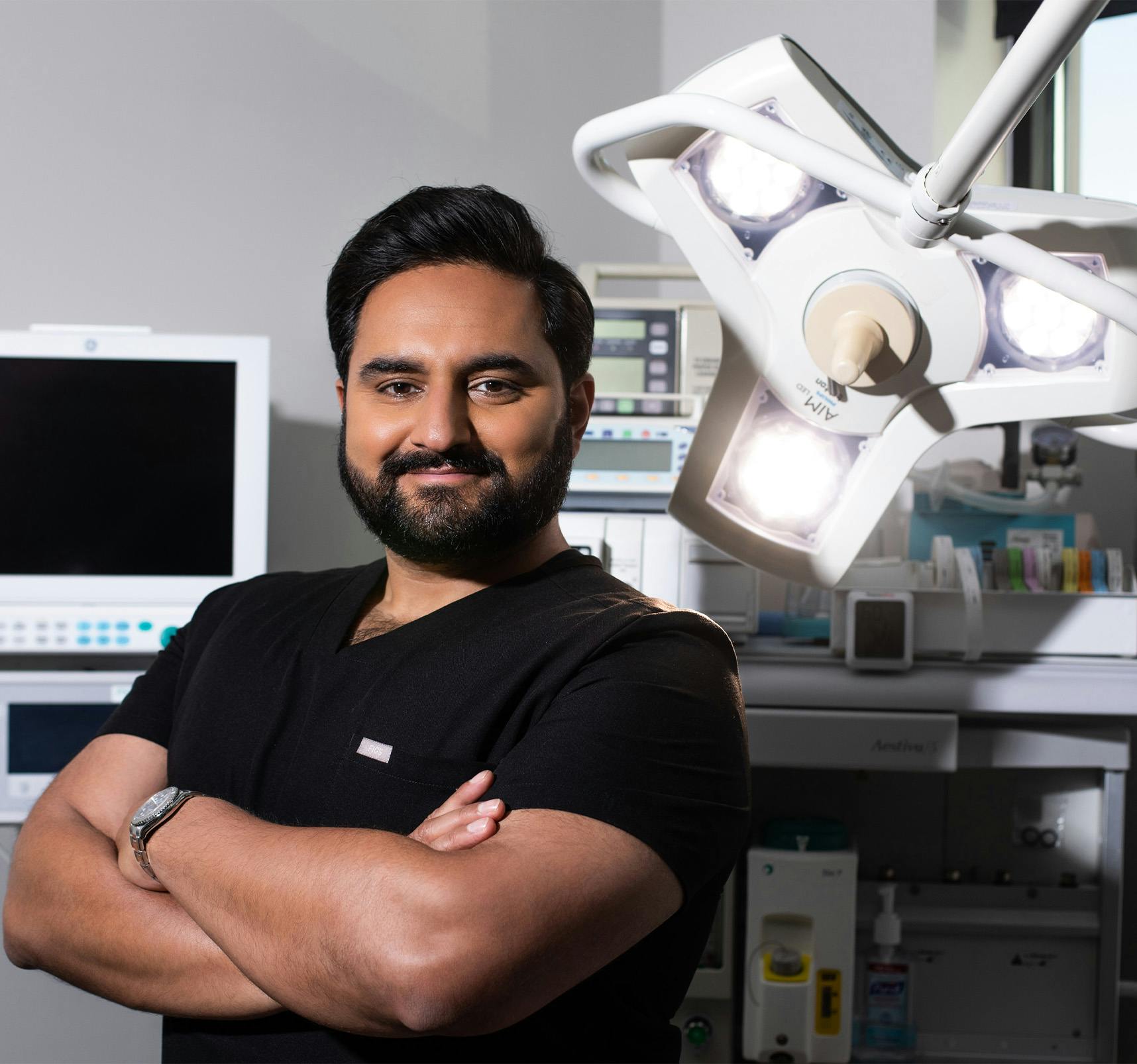What is Dr. Sharma Board Certified in?
Being board certified is essential for cardiologists because it demonstrates that they have met the highest standards of knowledge and expertise in their field. After ten years of training, a cardiologist can take an American Board of Internal Medicine exam. Even after achieving board certification, cardiologists continue to learn and keep up with the latest advances in treating patients to provide the best care. Many hospitals and insurance companies also require board certification for doctors to practice and be reimbursed for their services.
Dr. Sharma has earned an impressive eight board certifications:
Interventional Cardiology:
Board certification in Interventional Cardiology recognizes physicians who have completed specialized training and demonstrated expertise in diagnosing and treating cardiovascular diseases using minimally invasive techniques. To become board certified in Interventional Cardiology, a physician must complete a residency in Internal Medicine and a fellowship in Cardiology and then complete an additional fellowship in Interventional Cardiology. After completing the necessary training, the physician must pass a rigorous certification exam to become board certified. Board certification in Interventional Cardiology is a mark of excellence and indicates that a physician is highly qualified to provide advanced cardiovascular care using cutting-edge techniques.
Vascular Medicine:
Board certification in Vascular Medicine is a credential awarded by the American Board of Vascular Medicine (ABVM) to physicians who have completed specialized training and demonstrated expertise in diagnosing and managing vascular diseases. To become board-certified in vascular medicine, a physician must complete an accredited residency program in internal medicine or a related field and then complete a fellowship program in vascular medicine. After completing the fellowship, the physician must pass a rigorous examination administered by the ABVM. Board certification in vascular medicine is a mark of distinction that recognizes a physician's commitment to excellence in the field and assures patients that they receive care from a highly qualified and experienced specialist.
Endovascular Medicine:
Board certification in Endovascular Medicine recognizes physicians who have completed specialized training and demonstrated expertise in diagnosing and treating vascular diseases using minimally invasive techniques. To become board certified in Endovascular Medicine, a physician must first complete a residency in a relevant field, such as Internal Medicine, Surgery, or Radiology, and then complete an additional fellowship in Endovascular Medicine. After completing the necessary training, the physician must pass a rigorous certification exam to become board certified. Board certification in Endovascular Medicine is a mark of excellence and indicates that a physician is highly qualified to provide advanced vascular care using cutting-edge endovascular techniques. This certification is essential as vascular diseases are becoming increasingly common and require specialized maintenance to prevent complications.
Vascular Interpretation:
Board certification in Vascular Interpretation recognizes healthcare professionals who have demonstrated expertise in interpreting vascular ultrasound studies. To become board certified in Vascular Interpretation, a healthcare professional must first have a degree in a relevant field, such as Radiology, Vascular Technology, or Cardiology, and then complete specialized training in vascular ultrasound interpretation. After completing the necessary training, the healthcare professional must pass a rigorous certification exam to become board certified. Board certification in Vascular Interpretation is a mark of excellence and indicates that a healthcare professional is highly qualified to interpret vascular ultrasound studies accurately and effectively. This certification is fundamental as vascular ultrasound is a non-invasive and cost-effective diagnostic tool used to evaluate the blood flow in arteries and veins and diagnose various vascular diseases.
General Cardiology:
Board certification in General Cardiology recognizes physicians who have completed specialized training and demonstrated expertise in diagnosing and treating cardiovascular diseases. To become board certified in General Cardiology, a physician must complete a residency in Internal Medicine and a fellowship in Cardiology. After completing the necessary training, the physician must pass a rigorous certification exam to become board certified. Board certification in General Cardiology is a mark of excellence. It indicates that a physician is highly qualified to provide comprehensive cardiovascular care, including diagnosing and treating heart disease, hypertension, arrhythmias, and other cardiovascular conditions. This certification is critical as cardiovascular diseases are among the leading causes of death worldwide, and early detection and treatment can significantly improve patient outcomes and quality of life.
Nuclear Cardiology:
Board certification in Nuclear Cardiology recognizes physicians who have completed specialized training and demonstrated expertise in nuclear imaging techniques for diagnosing and treating cardiovascular diseases. To become board certified in Nuclear Cardiology, a physician must complete a residency in Internal Medicine, a fellowship in Cardiology, and additional training in Nuclear Cardiology. After completing the necessary training, the physician must pass a rigorous certification exam to become board certified. Board certification in Nuclear Cardiology is a mark of excellence. It indicates that a physician is highly qualified to use nuclear imaging techniques to diagnose and treat various cardiovascular conditions, including coronary artery disease, heart failure, and valvular heart disease. This certification is vital as nuclear imaging is a non-invasive and highly accurate diagnostic tool that can help physicians identify cardiovascular diseases in their early stages and develop effective treatment plans to improve patient outcomes.
Echocardiography:
Board certification in Echocardiography recognizes healthcare professionals who have demonstrated expertise in using echocardiography to diagnose and treat cardiovascular diseases. To become board certified in Echocardiography, a healthcare professional must first have a degree in a relevant field, such as Cardiology, Radiology, or Vascular Technology, and then complete specialized training in echocardiography. After completing the necessary training, the healthcare professional must pass a rigorous certification exam to become board certified. Board certification in Echocardiography is a mark of excellence. It indicates that a healthcare professional is highly qualified to use echocardiography to diagnose and treat various cardiovascular conditions, including heart disease, heart valve disorders, and heart failure. This certification is essential as echocardiography is a non-invasive and highly accurate diagnostic tool that can help physicians identify cardiovascular diseases early and develop effective treatment plans to improve patient outcomes.
Internal Medicine:
Board certification in Internal Medicine recognizes physicians who have completed specialized training and demonstrated expertise in diagnosing and treating adult diseases. To become board certified in Internal Medicine, a physician must first complete a residency in Internal Medicine, which typically lasts three years. After completing the residency, the physician must pass a rigorous certification exam to become board certified. Board certification in Internal Medicine is a mark of excellence. It indicates that a physician is highly qualified to provide comprehensive care for adults, including diagnosing and treating acute and chronic illnesses, preventive care, and health promotion. This certification is fundamental as internal medicine physicians often serve as primary care providers for adults, and their expertise is critical in managing complex medical conditions and coordinating care across multiple specialties.
Being a board-certified heart specialist in Orlando with additional board certifications in Internal Medicine and Interventional Cardiology demonstrates Dr. Sharma’s commitment to excellence and dedication to providing patients with the highest level of care.



